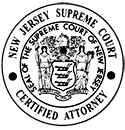5.10B FORESEEABILITY (AS AFFECTING NEGLIGENCE)
In determining whether reasonable care has been exercised, you will consider whether the defendant ought to have foreseen, under the attending circumstances, that the natural and probable consequence of his/her act or omission to act would have been some injury. It is not necessary that the defendant have anticipated the very occurrence which resulted from his/her wrongdoing but it is sufficient that it was within the realm of foreseeability that some harm might occur thereby. The test is the probable and foreseeable consequences that may reasonably be anticipated from the performance, or the failure to perform, a particular act. If an ordinary person, under similar circumstances and by the use of ordinary care, could have foreseen the result, [i.e., that some injury or damage would probably result] and either would not have acted or, if he/she did act, would have taken precaution to avoid the result, then the performance of the act or the failure to take such precautions would constitute negligence.



